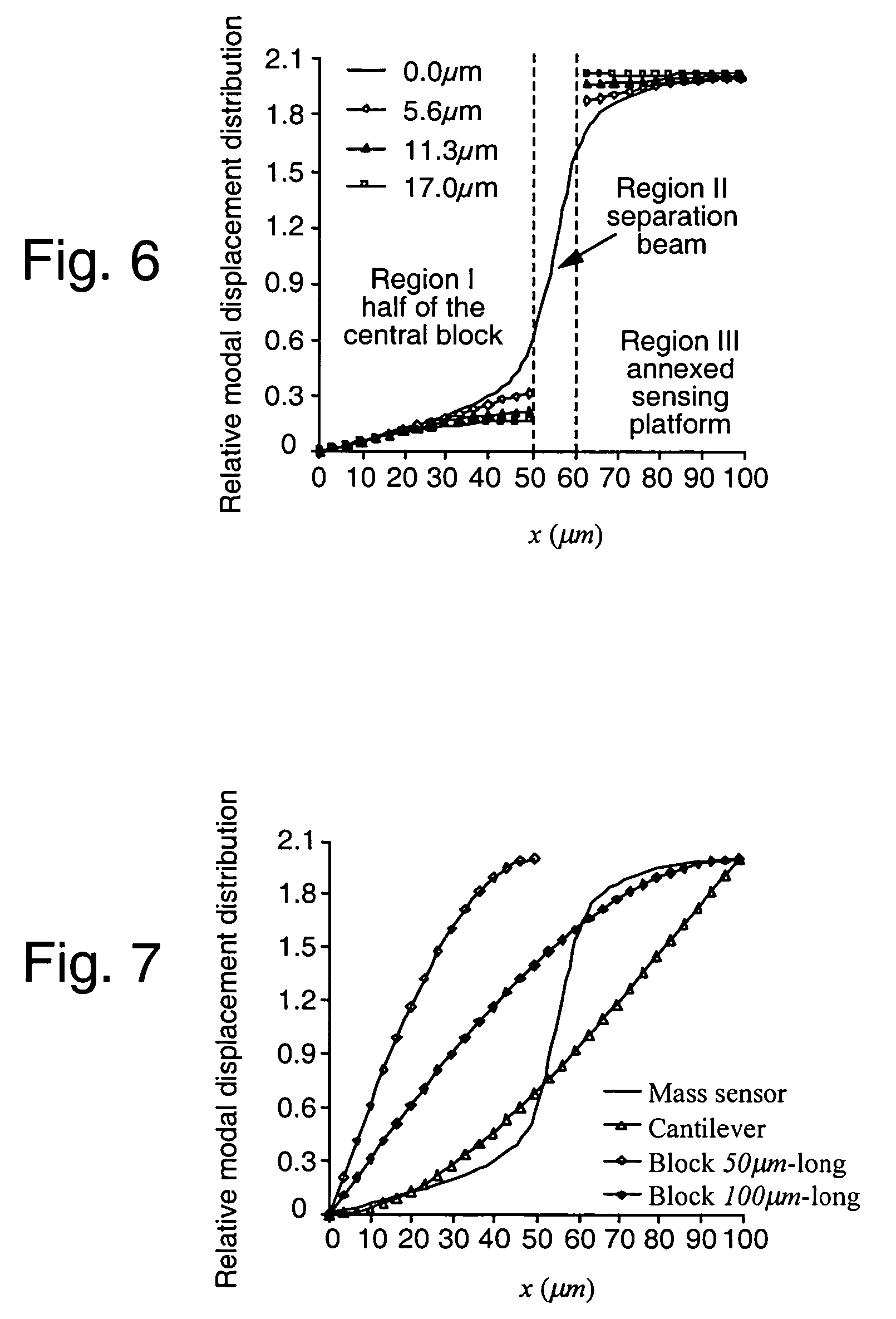Georgia Tech inventors have created a high-Q longitudinal block resonator with an annexed platform for mass sensing. The annexed sensing platforms incorporated into the sensors greatly alleviate the technical issues pertinent to cantilever-based mass sensors. The utilization of the length-extensional bulk-mode vibrations of a resonant microstructure enables higher mass sensitivity at a large scale, relative to cantilever-based sensors; high-Q in air; on-chip integrated transducers; and compatibility with sensor array configurations.
- Improved mass sensitivity
- High-quality in air
- Simplicity in fabrication
- Reliable
- Defense applications
- Chemical-sensing
- Environmental monitoring
- Health care
Resonant micro- and nano-cantilevers as mass sensors have demonstrated adsorption-induced stiffness variation, complicating interpretation of experimental results for calculating adsorbed mass from frequency shift. Moreover, cantilevers need to be scaled down to the nanometer range for high sensitivity, imposing fabrication difficulty and long-term stability. While FBAR-based mass sensors can achieve high sensitivity at micron scale, the dependence of the mass sensitivity on the FBAR design, such as acoustic isolation for separating the vibrations from the substrate, complicates the fabrication processes.

